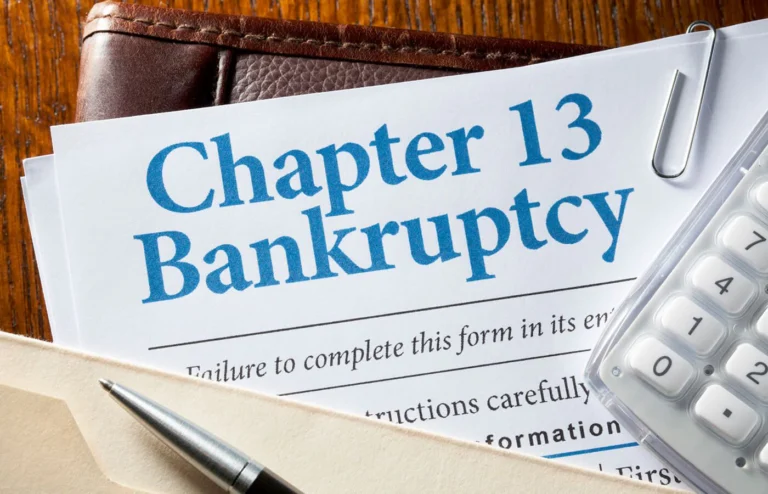People who are drowning in debt can get relief through the legal procedure of bankruptcy. It allows for the reorganization or elimination of debts under the protection of the bankruptcy court. Chapter 7 and Chapter 13 bankruptcy are two of the most prevalent forms filed by people. Each has distinct advantages, eligibility criteria, and implications for your financial future. This article explores these differences, offering guidance on how to choose the best option for your financial situation.
Understanding Chapter 7 Bankruptcy
Chapter 7 bankruptcy, often referred to as “liquidation bankruptcy,” involves the sale of a debtor’s non-exempt assets to pay off creditors. It is designed for individuals who cannot afford to repay their debts and need a fresh start. This section will detail how Chapter 7 works, who qualifies, and what assets are protected.
Understanding Chapter 13 Bankruptcy
Chapter 13 bankruptcy, known as “reorganization bankruptcy,” allows individuals to keep their assets while repaying creditors through a court-approved repayment plan. This section explains the workings of Chapter 13, its eligibility requirements, and how it differs from Chapter 7 in terms of asset retention and debt repayment.
Eligibility Criteria: Who Can File?
Not everyone can choose between Chapter 7 and Chapter 13 freely. Eligibility for Chapter 7 is primarily determined by the means test, which assesses your income and expenses to determine if you qualify. For Chapter 13, you must have a regular income and debts within specific limits. This section provides a detailed comparison of the eligibility requirements for both chapters.
Differences in the Process: Liquidation vs. Repayment
The processes for Chapter 7 and Chapter 13 bankruptcies differ significantly. Chapter 7 typically concludes in a few months, with most debts discharged, while Chapter 13 involves a repayment plan lasting three to five years. This section outlines these procedural differences and what debtors can expect when filing for each type of bankruptcy.
Impact on Assets: What Do You Keep?
One of the major concerns for individuals considering bankruptcy is what happens to their property. In Chapter 7, non-exempt assets may be sold to repay creditors, whereas Chapter 13 allows you to retain all assets if the repayment plan is followed. This section compares how assets are treated under each chapter, including exemptions and potential loss of property.
Effect on Credit Scores and Future Financial Opportunities
Bankruptcy has a significant impact on your credit score, affecting your ability to obtain loans, credit cards, or even housing in the future. This section discusses the impact of Chapter 7 and Chapter 13 bankruptcies on credit reports, how long they remain on your credit history, and strategies for rebuilding credit after bankruptcy.
Costs Involved: Filing Fees and Other Expenses
Filing for bankruptcy involves various costs, including filing fees, attorney fees, and additional expenses. Chapter 7 tends to be less expensive upfront but may involve the loss of assets, while Chapter 13’s costs are spread out over the repayment period. This section provides a detailed breakdown of the costs associated with both types of bankruptcy.
Debt Discharge: What Debts Are Wiped Out?
Chapter 7 can discharge most unsecured debts, such as credit card debt and medical bills, while Chapter 13 includes a broader range of debt in the repayment plan, including certain secured debts. This section examines which debts are dischargeable under each chapter and which are not, helping you understand what financial relief you can expect.
The Role of the Bankruptcy Trustee
A bankruptcy trustee plays a crucial role in both Chapter 7 and Chapter 13 cases, overseeing the sale of assets or the repayment plan. This section explores the trustee’s responsibilities in each type of bankruptcy, how they interact with creditors, and what you can expect during the process.
How to Choose Between Chapter 7 and Chapter 13
Deciding between Chapter 7 vs. Chapter 13 Bankruptcy requires careful consideration of your financial situation, including your income, types of debt, and long-term financial goals. This section provides a step-by-step guide to help you evaluate your options, including when it might be better to opt for Chapter 7 over Chapter 13, or vice versa.
Conclusion
Choosing between Chapter 7 and Chapter 13 bankruptcy is a significant decision that can impact your financial future for years to come. By understanding the key differences between these two types of bankruptcy, including eligibility criteria, the impact on assets, and the process involved, you can make a more informed choice. Consulting with a bankruptcy attorney is also highly recommended, as they can provide personalized advice based on your specific circumstances, helping you navigate this complex legal process with confidence.

